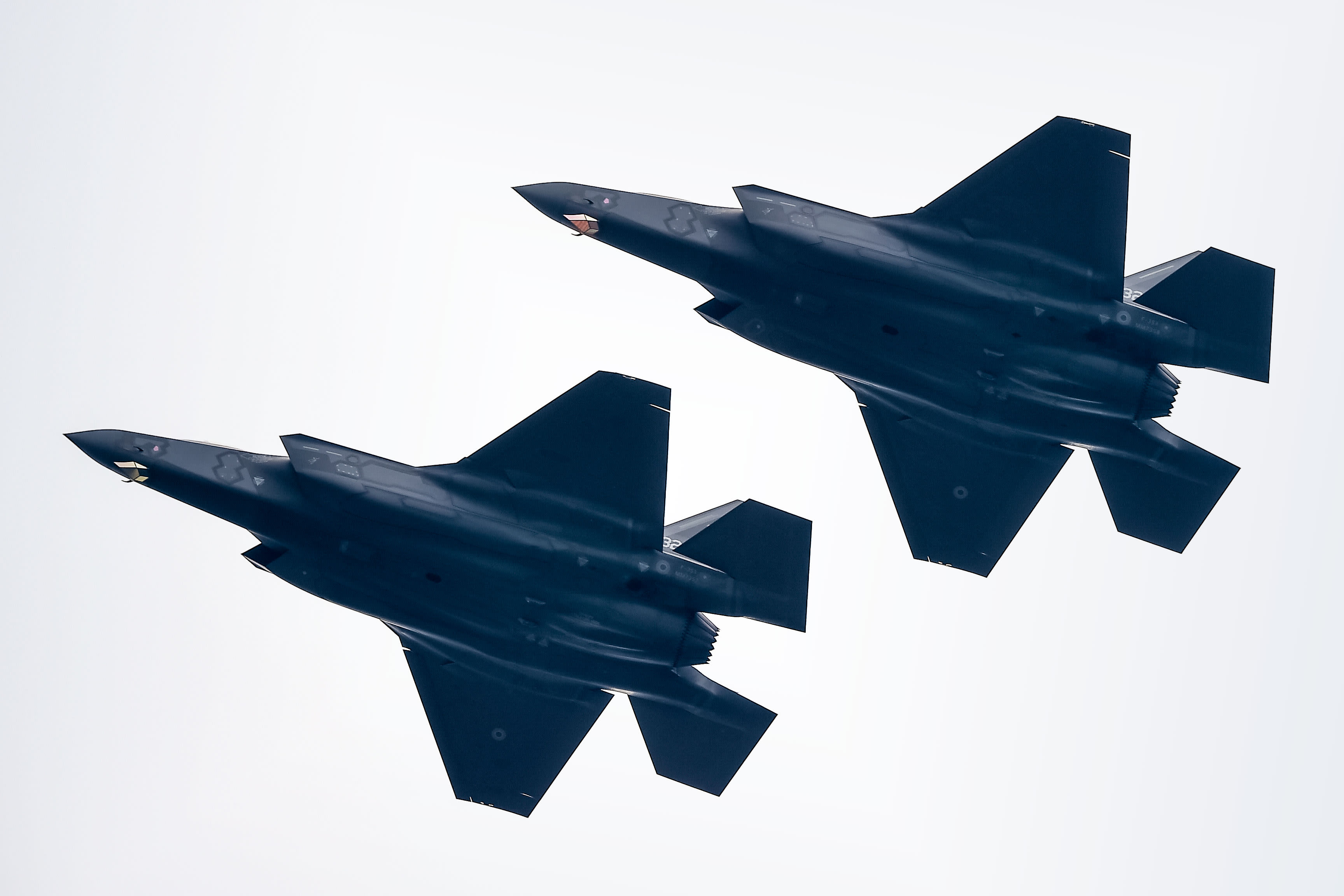
Two Lockheed Martin F-35 Lightning II jets fly during a military aeronautical training exercise. Taken on 4 Sept. 2019.
Nicolò Campo | LightRocket | Getty Images
DUBAI, United Arab Emirates — The administration of President Joe Biden is pausing weapons sales to Gulf allies Saudi Arabia and the United Arab Emirates as part of a broader review of multibillion-dollar arms agreements made under the Trump administration.
Biden’s newly confirmed Secretary of State Antony Blinken described the review — which is common for new administrations — as being conducted “to make sure that what is being considered is something that advances our strategic objectives, and advances our foreign policy.”
The pause and review itself are nothing unusual. But the arms sales in question are historic: they would represent the most advanced and most classified American weapons systems ever sold to Arab allies.
In the past, lethal drones and the flagship F-35 joint strike fighter jet were off the table for Arab allies in the Middle East because of Washington’s commitment to maintaining Israel’s advantageous qualitative military edge, or QME, in the region — a policy that has been codified in U.S. law for decades. But since the signing of the Abraham Accords in August normalizing relations between the UAE and Israel, acquiring these systems became a real possibility for the Emiratis.
This is still not the case with Saudi Arabia, which has not normalized relations with Israel, but its pending purchase in the broader arms deal includes billions of dollars’ worth of precision-guided munitions.
Analysts interviewed by CNBC note that while Washington’s relationship with the UAE isn’t likely to see significant changes, the one with the Saudis probably will.
“It’s not going to be everybody gets to do whatever they want. The relationship is going to go back to strategic and values-based, which we haven’t done in four years,” a former senior Obama administration official familiar with Biden’s thinking told CNBC.
“It’s not going to be a good relationship between the U.S. and Saudi without some significant changes,” the former official said, speaking anonymously due to professional restrictions.
The relationship with the kingdom during former President Donald Trump‘s tenure has been described by many observers as “permissive.” The White House did not pursue penalties against Riyadh for its role, as reported by U.S. intelligence agencies, in the killing of Saudi journalist Jamal Khashoggi in October 2018. It also made little mention of its widely reported human rights abuses, which include jailing and allegedly torturing several female Saudi activists.
When a bipartisan coalition of lawmakers voted to end U.S. support for the Saudi-led war in Yemen, Trump vetoed them. And in May of 2019, Trump declared a “national emergency” over tensions with Iran in order to bypass congressional approval procedures to push through an $8 billion weapons sale to Saudi Arabia, the UAE and Jordan.
‘Change your behavior’
Things are going to be different now, according to the former official.
“He (Biden) doesn’t want a negative relationship with Saudi Arabia, he wants them to pay the price. Change your behavior,” he said. “At the end of the day we hold the cards, not them.”
Indeed, Biden in an early 2020 presidential debate promised to make Saudi Arabia “the pariah that they are.”
The Saudi Foreign Ministry and the Saudi Embassy in Washington, D.C., did not respond to CNBC’s requests for comment on the weapons sale pause or Biden’s “pariah” comment.
Riyadh congratulated Biden on his presidential win, but not until more than 24 hours had passed since his victory was declared.
Jessica Leyland, a senior intelligence analyst at London-based risk consultancy firm AKE International, underlined the changes Biden is expected to bring in.
“President Trump proved a steadfast partner to Mohammed bin Salman, but the Crown Prince now faces a Biden administration which will judge the Kingdom on its human rights record, the conflict in Yemen and MbS’s arbitrary detentions of princes,” she wrote in a report released on Sunday.
In addition to the Biden administration’s new apparent focus on values, the current pause in weapons sales also has a crucial security angle, says Bradley Bowman, the senior director of the Center on Military and Political Power at the Foundation for Defense of Democracies.
“There are some things to balance here from an American perspective. We don’t want the most advanced fighter in the world, and the technologies associated with it, to be leaking to Beijing or Moscow,” he told CNBC’s “Capital Connection” on Tuesday.
But he stressed the divergence between Washington’s relationships with the UAE and with Saudi Arabia.
“I think robust arms sales will continue to the UAE, we’ll have to watch the F-35 closely — but I think Saudi Arabia is in for some real tough sledding, particularly because of their activities in Yemen,” he said.
The UAE’s embassy to the U.S. on Wednesday conveyed on Twitter that they fully expected the pause. “As in previous administrations, the UAE anticipated a review of current policies by the new administration,” it wrote.




